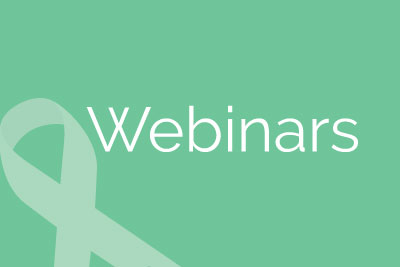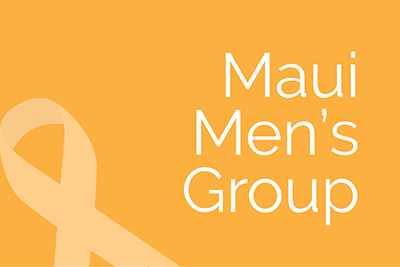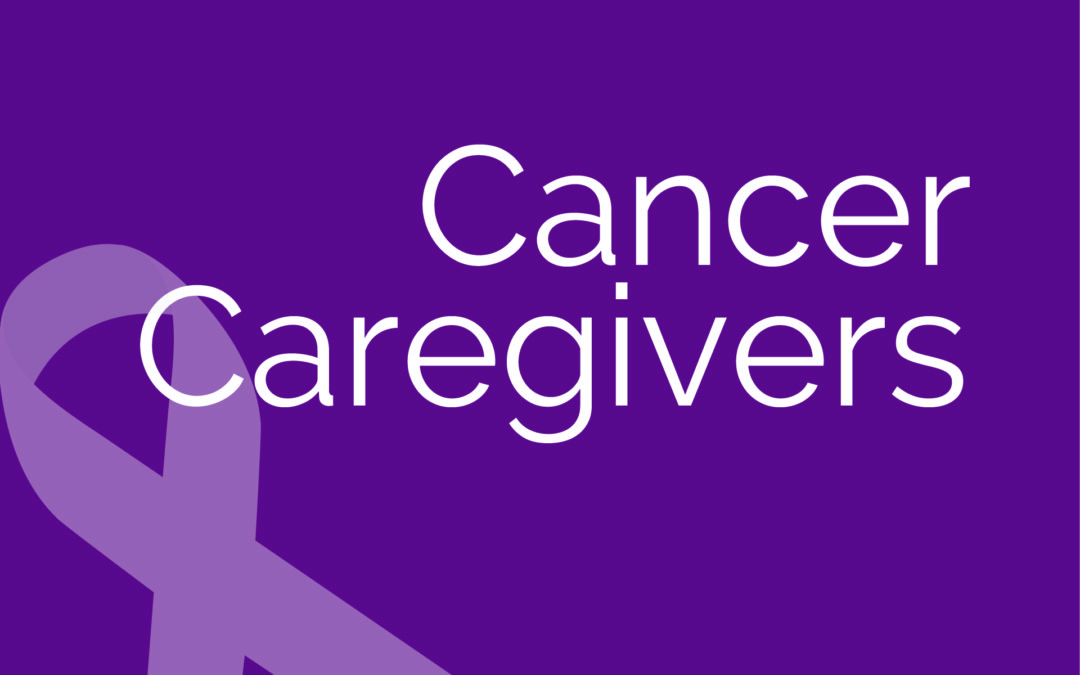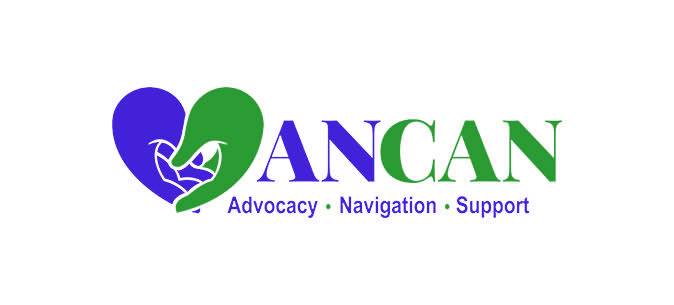
by Rick Davis | Aug 31, 2020 | Cancer Resources, Advocacy, Brain Tumors, Cancer Caregivers, mCRPC, Men's Breast Cancer, nmCRPC, Ovarian Cancer, Prostate Cancer, Recent News, RMC, Women's Breast Cancer
Many of you already know, AnCan works closely with Foundation Medicine Inc who offer Next Generation Sequencing (NGS) somatic liquid and solid tumor testing.
Here are THREE great pieces of news shared with us over the past few days:
- The ‘new & improved’ Liquid CDx Test was FDA approved late last week, meaning this test now covers the same 300+ mutation panel as the solid tumor test – but at the prick of a needle! . Read their full press release here.
- Medicare considers the Liquid test to be separate and independent from the Solid Tumor test meaning both are covered for the same individual at different times.
- AND that’s not all ….. finally we have a decision back from FMI that repeat testing for either Liquid or Solid is Medicare covered IF there is disease progression. In FMI’s words (that we are approved to disseminate):

AnCan’s always advocating for you ……. and thanks to the FMI team for pursuing this, especially Senior Manager for Patient Engagement, our good friend David Marshak!

by Rick Davis | Aug 27, 2020 | Advocacy, Blood Cancers, Cancer Caregivers, Cancer Resources, Men's Breast Cancer, Webinars, Women's Breast Cancer

Dear Friends and Colleagues,
CancerCare welcomes you to participate in our upcoming CancerCare Connect® Education Workshops. These one-hour telephone and webcast workshops are a cost-free way to learn about cancer-related issues from the convenience of your home or office. Leading experts in oncology provide the most up-to-date information via phone and online.
Please feel free to forward to friends, family, partners, caregivers, colleagues, health care professionals and anyone affected by cancer.
For more information and to register, please visit www.cancercare.org/connect or email connect@cancercare.org. Health care professionals: please contact us with your name, address, and license type for additional information regarding continuing education credits. Requests must be received within two weeks of the live program.
CancerCare‘s Upcoming Workshops
Managing the Cost of Living Cancer
Wednesday, September 23, 2020 from 1:30 to 2:30 pm Eastern Time
What’s New in the Treatment of Hodgkin Lymphoma
Thursday, September 24, 2020 from 1:30 to 2:30 pm Eastern Time
Living with Metastatic Breast Cancer
Thursday, October 8, 2020 from 1:30 to 2:30 pm Eastern Time
Coping with Metastatic Triple Negative Breast Cancer
Part I of Life with Metastatic Triple Negative Breast Cancer
Wednesday, October 14, 2020 from 1:30 to 2:30 pm Eastern Time
New Perspectives in the Treatment of Peripheral T-Cell Lymphoma (PTCL)
Wednesday, October 21, 2020 from 1:30 to 2:30 pm Eastern Time
Preventing and Managing Infections in Adults Living with Cancer
Monday, October 26, 2020 from 1:30 to 2:30 pm Eastern Time
Caregiving for Your Loved One Living with Metastatic Triple Negative Breast Cancer
Part II of Life with Metastatic Triple Negative Breast Cancer
Wednesday, October 28, 2020 from 1:30 to 2:30 pm Eastern Time
Caregiving for Your Loved One Living with Cancer
Tuesday, November 3, 2020 from 1:30 to 2:30 pm Eastern Time
Progress in the Treatment of Lung Cancer
Part I of Living with Lung Cancer
Tuesday, November 10, 2020 from 1:30 to 2:30 pm Eastern Time
For Caregivers: Practical Tips for Coping with Your Loved One’s Lung Cancer
Part II of Living with Lung Cancer
Tuesday, November 17, 2020 from 1:30 to 2:30 pm Eastern Time
Update on Diffuse Large B-Cell Lymphoma (DLBCL)
Wednesday, November 18, 2020 from 1:30 to 2:30 pm Eastern Time
Updates from the San Antonio Breast Cancer Symposium (SABCS) on Triple Negative Breast Cancer (SABCS)
Tuesday, December 15, 2020 from 1:30 to 2:30 pm Eastern Time

by Rick Davis | Aug 19, 2020 | Cancer Resources, Blood Cancers, Maui, Men 'Speaking Freely', Men's Breast Cancer, nmCRPC, Ovarian Cancer, Prostate Cancer, Women's Breast Cancer
One of the video chat, virtual groups our factotum Board Chair, Peter Kafka, moderates, is a men-only, pan-cancer meeting on the island of Maui (& Malakai), where he lives fulltime. His recent reminder for tonight’s meeting makes worrisome reading and includes helpful advice ……
Aloha! ……. once again our local hospital is in the news due to very recent incidents of Covid-19 infections among some patients and staff. I don’t mention this to cause alarm, but rather to caution those of us who must out of necessity use the facilities of the hospital for treatment. I found myself at the hospital for the administration of an injection on the very morning when this “outbreak” was first reported last week. Of course it made me a little uncomfortable, but what to do? Those of us with cancer, and particularly those of us undergoing treatment find ourselves in the “most vulnerable” category when it comes to exposure to Covid-19. I suspect that many of you are paying particular attention to ways that you can stay safe. It turns out that there might be some things we can do.
When I was undergoing chemo infusions every three weeks at the Cancer Center I would don a disposable tyvek painter’s suit that I picked up inexpensively at the hardware store. I would step into this suit in the hospital parking lot and when I was done with my 4 hour protocol I would remove the suit and toss it. This would save me the hassle of thinking I needed to change out of my clothes right away and wash them. Of course it might not have done any good, but it did give me peace of mind that I was taking some kind of additional protection other than wearing a mask and disposable gloves.
Another thing that I read about recently is the benefit of an annual flu vaccine. I think there has been a study or two about the lower incidence of more serious incidence, side effects and death among some European populations who stayed up to date with their annual flu vaccines. I know that Covid-19 is a different beast than the annual flu, but there might be some benefit to keeping up protection to the flu that strengthens our immune system in regards to Covid-19. Don’t quote me on this theory, but since my cancer diagnosis some 6 + years ago I have made it a point to keep up with annual flu shots and pneumonia vaccines since I knew my immune system was compromised. You may have noticed that all the drug stores and supermarkets are now advertising that the “walk in” flu shots are available for this year. No need to see a doctor or clinic.
One of the ways that we tend to let our guard down is by thinking that there is no one that we know of that has caught Covid-19, been sick or in the worst case scenario has died from this disease. I know I have caught myself getting a little careless because of this way of thinking. But I remind myself that one of our regular participants on these bi-monthly calls got caught up in the first Maui Memorial Hospital outbreak last March when he unwittingly had to go to the hospital for treatment related to his cancer diagnosis. He did contract the virus and subsequently died very shortly afterwards.
So, again I am not telling you this to cause alarm. Just take some extra precautions. I am certainly not saying you should stay away from doctors or the hospital. I, myself have to utilize the hospital facilities several times a month and also get blood drawn at a local lab quite frequently. I am not going to skip out on my cancer treatment protocol. But I am going to take whatever steps I can to protect myself.
None of us need feel like we are alone on this journey! Remember that Information is Power and the more information we share about our experience – the more powerful we are and we no longer feel like victims of our circumstance but masters of them instead.
Be Well, Stay Strong and ENJOY!

by Rick Davis | Aug 6, 2020 | Blood Cancers, Brain Tumors, Cancer Caregivers, Cancer Resources, Health Resources, hospice and palliative, Men's Breast Cancer, Ovarian Cancer, Prostate Cancer, Recent News, Women's Breast Cancer
One of our earliest, and certainly most enduring, non-prostate cancer moderators has been nationally recognized caregiver advocate, Renata Louwers. In barely 12 months, if that, Renata lost her first husband, Ahmad, to bladder cancer back in 2014. Since that time she has tirelessly campaigned to establish the Caregiver perspective on the medical radar; not to mention all the fundraising she has done for BCAN and bladder cancer …. G-d Bless Her!
This past week Health Union published the second part of an article Renata wrote for their Bladder Cancer Page – both parts are linked below. And no, they are not specifically about bladder cancer but more about her experience of being a peer moderator for a videochat virtual group that AnCan runs for Advanced Cancer Caregivers.
Pt 1 – https://bladdercancer.net/caregiver/online-support-ancan/
Pt 2 https://bladdercancer.net/caregiver/volunteer-moderating-support/
The easiest way to find more of Renata’s articles …. and there are so many excellent ones, especially for The Philadelphia Inquirer, is to google ‘Renata Louwers, medical journalist‘; do it and you’ll have no regrets!
AnCan’s heartbeat thrives on helping peers; it races when our Volunteers, our lifeblood, find satisfaction in the work they perform for us at AnCan. We love our volunteers; we especially love you, Renata xox
To receive reminders for our Advanced Cancer Caregivers Group, or any others that are all free & drop-in, click here.

by Rick Davis | Jul 11, 2020 | Health Resources, Advocacy, Blood Cancers, Cancer Caregivers, Cancer Resources, Multiple Sclerosis, Ovarian Cancer, Prostate Cancer, Sarcoidosis, Women's Breast Cancer
Peter Kafka, AnCan’s Board Chair, Lead Moderator for the Low/Intermediate Risk Prostate Cancer VIrtual Group, and general renaissance man reflects on how readily accessible medical care is to many. Since Peter is just finishing his 6th and final cycle of chemotherapy for his own condition, he is well qualified to muse! (rd)
One aspect of the Covid-19 pandemic that stands out to me is the tension amongst the nationalistic models of healthcare and preventative medicine that exist in the world. It seems to me that this current experience is exposing the need to push the door open to a more cooperative and universal model of access to healthcare. Once a vaccine is developed it will have to be available across the board to everyone otherwise national borders will forever be closed.
Those of us who have been dealing with various aspects of the prostate cancer spectrum for any time have no doubt noticed the disparities in the world regarding diagnosis and treatment. Yet the disease, like Covid-19 is universal the world over. Even within the United States, the options that are available to men who face prostate cancer are not even all over. In my own experience I have had to travel many miles to seek diagnostic and treatment options for my disease that were not available at home. And I know that many men who face a similar predicament do not have this option.
The term “Standard of Care” seems to relate more to the legal protection of the medical field rather than a measure of the best options that a patient might have. It is not a good yardstick, and lags way behind the rapidly advancing medical advances in the world of prostate cancer. Standard of care is often the medical minimum and I feel that all of us men, the world over deserves more than that. I know that I would not be alive today, six years on from diagnosis if I had settled for the standard of care treatment for my disease.
In the current situation with travel restrictions and closed borders some diagnostic and treatment options are no longer universally available, even to those who might be in financial position to afford them. Up until recently it seemed that money was the key that opened the door to the best healthcare. So, in my mind, during this unprecedented time of worldwide crisis it should give us pause to ponder if there perhaps a way forward to raise the bar and make the best healthcare more universally available to all. Can we imagine such a possibility?






